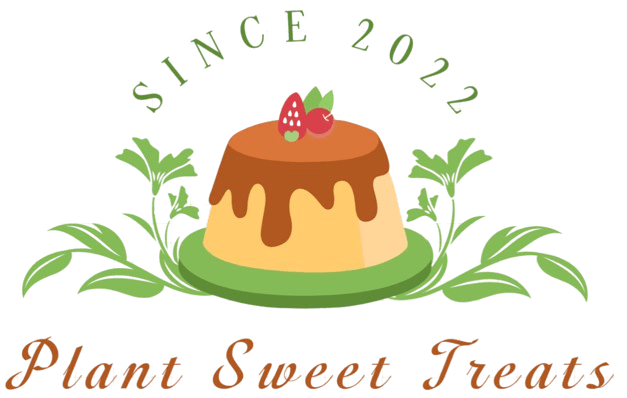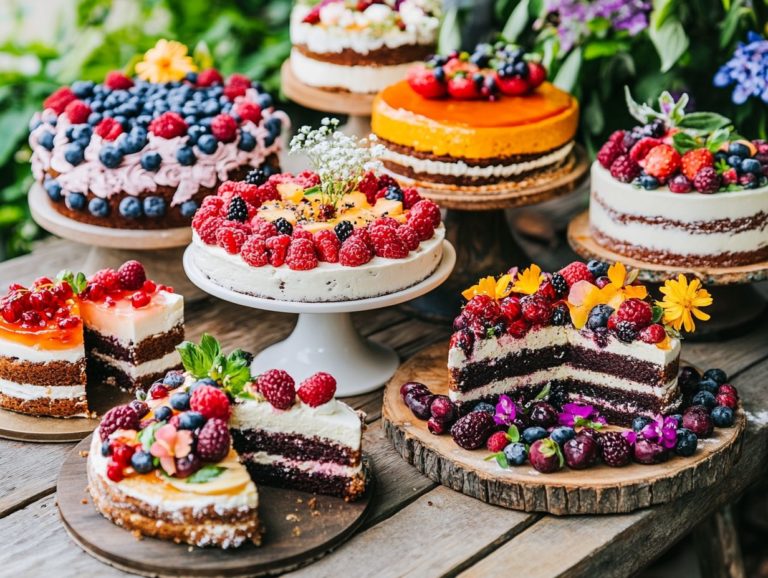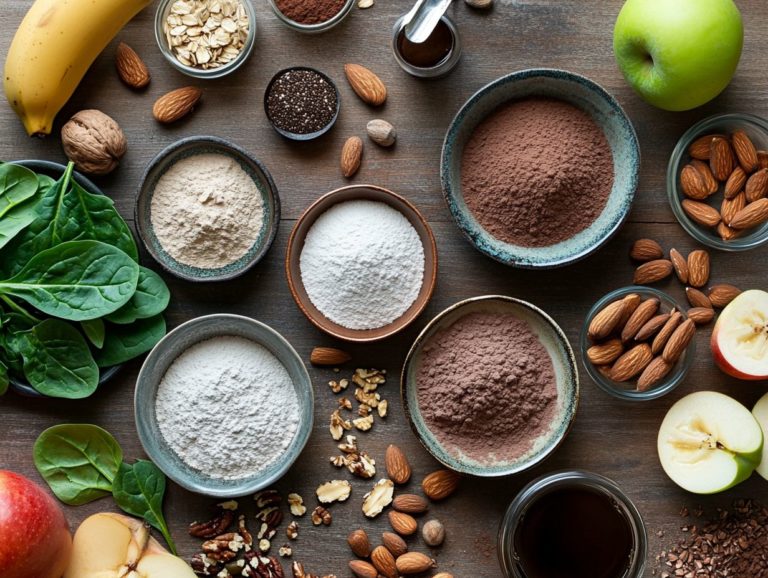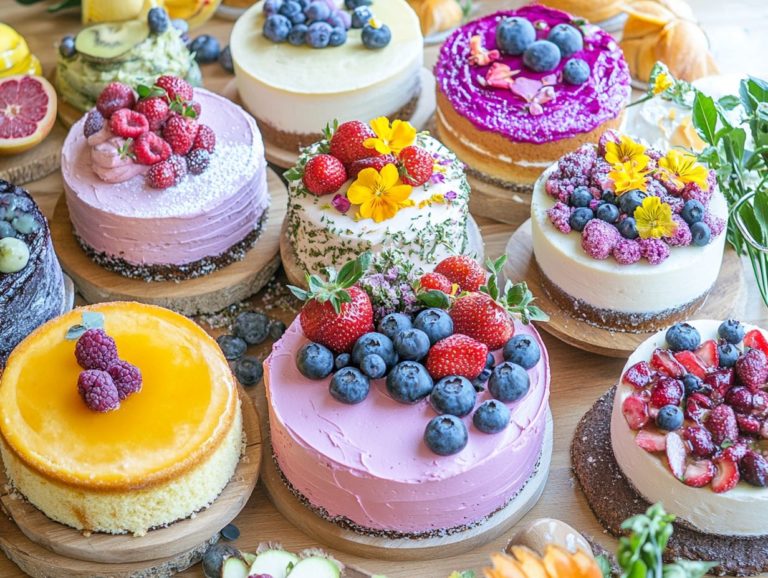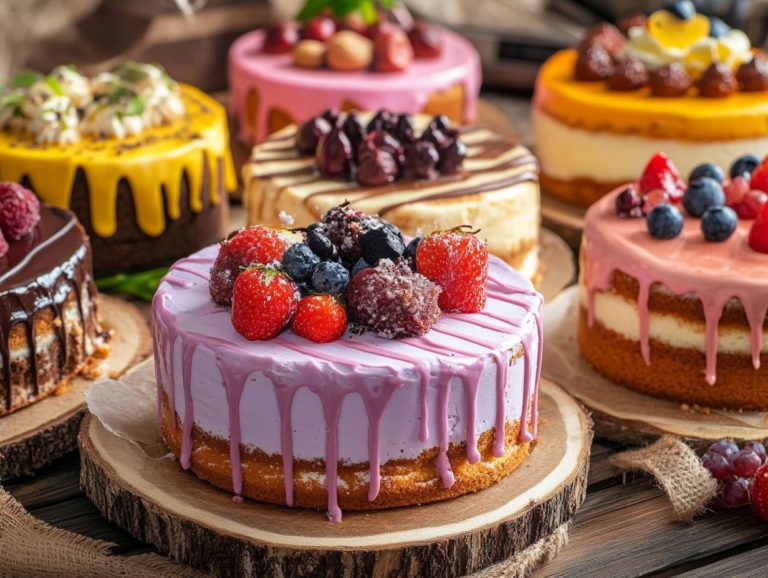The Best Vegan Cake Baking Classes to Join
Vegan baking offers an exciting and delectable avenue for crafting desserts that embrace a plant-based lifestyle. You won’t have to compromise on flavor or texture.
This guide will walk you through the essentials of vegan baking. It will help you grasp the fundamentals of key ingredients and substitutions while also honing advanced techniques for creating stunning cakes.
Whether you’re a novice eager to embark on this culinary adventure or a seasoned baker in search of fresh inspiration, you will uncover valuable tips, enticing recipes, and insightful ideas to elevate your vegan baking prowess. This includes cake decorating techniques and ingredient control.
Consider enrolling in a vegan cake baking class, a cake workshop, or online sessions with live demonstrations. These options can enrich your expertise and unleash your creativity in the kitchen. Dive into the journey of creating mouth-watering, guilt-free treats that will wow your friends and family!
Contents
- Key Takeaways:
- 2. Basic Ingredients and Substitutions
- 3. Tips for Successful Vegan Baking
- 4. Vegan Cake Recipes to Try
- 5. Advanced Techniques and Decorations
- 6. Vegan Baking for Special Dietary Needs
- 7. Baking with Alternative Flours and Sweeteners
- 8. Vegan Cake Decorating Techniques
- 9. How to Make Vegan Frosting and Icing
- 10. Troubleshooting Common Vegan Baking Issues
- What Are the Benefits of Joining a Vegan Cake Baking Class?
- What Are Some Tips for Choosing the Right Vegan Cake Baking Class?
- Frequently Asked Questions
- What are the best vegan cake baking classes to join?
- What can I expect to learn in a vegan cake baking class?
- Do I need to have any prior baking experience to join a vegan cake baking class?
- Are there any age restrictions for joining a vegan cake baking class?
- What equipment or ingredients will I need for a vegan cake baking class?
- Can I request a specific type of vegan cake to be taught in a baking class?
- Frequently Asked Questions
Key Takeaways:
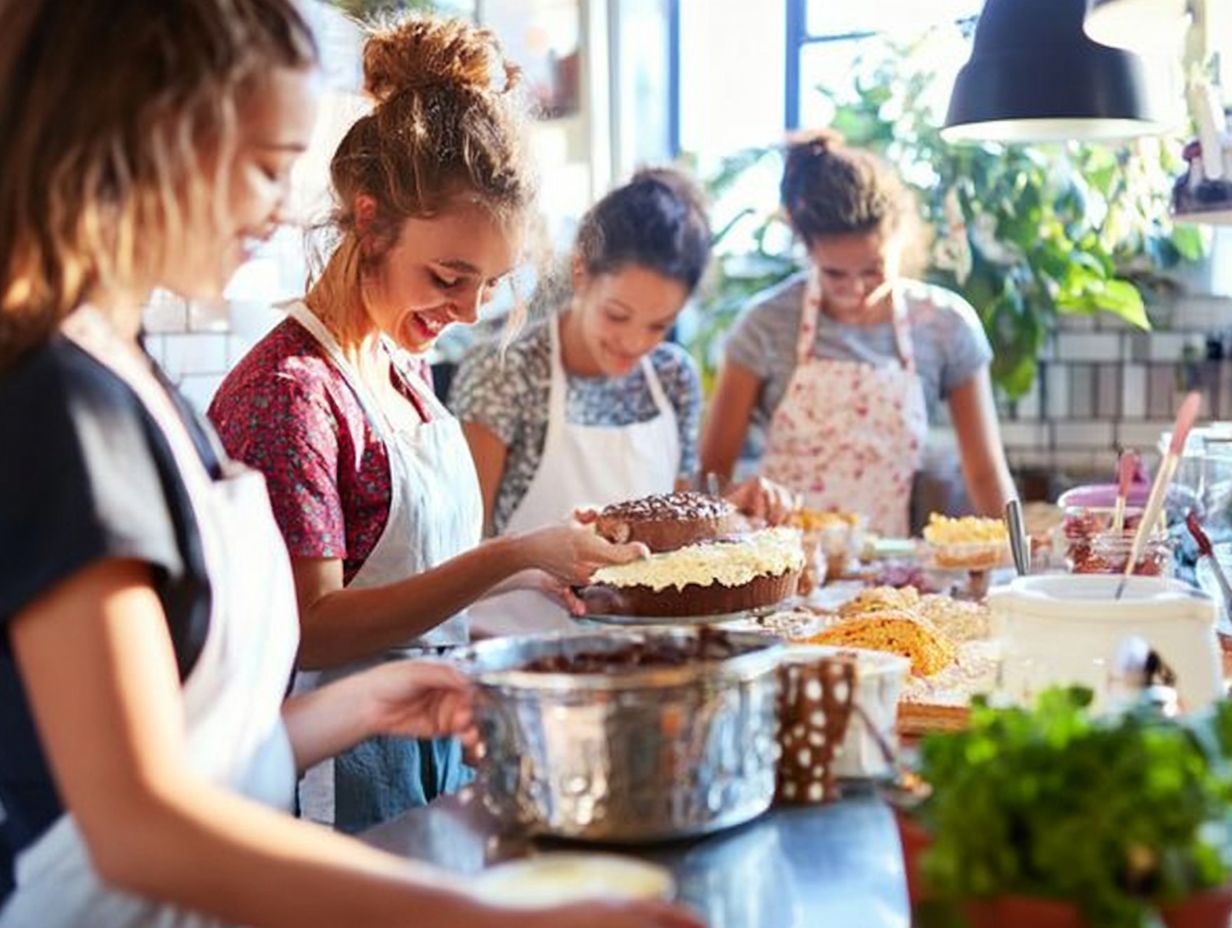
- Explore the world of vegan baking with these top tips, easy recipes, and delicious cakes.
- Join a vegan cake baking class, baking workshop, or online course to learn new techniques and improve your baking skills.
- Discover the benefits of baking for special dietary needs, including gluten-free, no dairy, and no eggs, and using alternative ingredients like flours and sweeteners.
2. Basic Ingredients and Substitutions
Understanding baking fundamentals and incorporating vegan alternatives can transform traditional recipes into wholesome desserts that suit a healthy lifestyle.
Understanding the essential ingredients and their substitutions is crucial in vegan baking. Traditional components like eggs and dairy are elegantly replaced with wholesome plant-based alternatives to create nutritious and scrumptious cakes and desserts.
Ingredients such as whole wheat flour and superfoods not only enhance the flavor but also elevate the health benefits of your vegan recipes. This ensures that your baked goods are both satisfying and aligned with a healthy lifestyle.
As you explore plant-based alternatives, you ll encounter some common substitutions that will revolutionize your baking. For instance, when you mix flaxseed with water, it beautifully mimics the binding properties of eggs. Meanwhile, applesauce adds moisture and sweetness, making it an ideal substitute in cakes.
Regarding dairy, coconut milk and almond milk are superb stand-ins, providing rich flavors without any animal products. It s essential to exercise control over your ingredients to achieve the perfect texture and flavor in vegan baking. Don t shy away from experimenting with these substitutes.
Incorporating superfoods like chia seeds or hemp hearts not only boosts the nutritional value of your creations but also introduces unique textures. This makes your vegan delights even more irresistible.
3. Tips for Successful Vegan Baking
To achieve success in vegan baking, you must embrace specific tips tailored to the unique properties of plant-based ingredients. This ensures that your cakes turn out moist, flavorful, and utterly delightful.
Focus on key baking techniques like precise ingredient control and understanding the role of each component. Utilize straightforward recipes that cater to various dietary preferences, making them accessible for both beginners and seasoned bakers.
Accurate measurement of your ingredients is paramount; even a slight variation can drastically alter the final result. Pay close attention to adjusting baking times, as plant-based recipes often require different durations compared to their traditional counterparts.
Don’t shy away from experimenting with flavors. This can unlock a world of possibilities. Consider adding natural sweeteners, spices, or citrus to enhance depth and complexity.
Remember to test your recipes multiple times before sharing them. This not only builds your confidence but also ensures that your results are consistently impressive.
When challenges arise, like cakes that refuse to rise or end up too dense, take a moment to reflect on your methods. Don’t hesitate to seek advice from the vibrant baking community; their shared experiences and tips can inspire your next culinary adventure.
We would love to hear about your experiences with vegan baking! Share your favorite recipes and tips in the comments below!
4. Vegan Cake Recipes to Try
Exploring the world of vegan cake recipes opens up a treasure trove of delightful possibilities, ranging from rich chocolate cakes to light and fluffy sugar-free variants. These homemade cakes not only tantalize taste buds but also suit dietary needs, showcasing the incredible versatility of vegan ingredients in crafting mouthwatering desserts.
Take, for instance, a velvety vegan chocolate cake. This cake often incorporates cocoa powder, almond milk, and applesauce to achieve that irresistibly moist texture. Or imagine a refreshing lemon drizzle cake using fresh lemon juice, zest, and coconut oil for a zesty twist that brightens your palate.
Consider vanilla bean cupcakes, made with a blend of coconut milk and flaxseed meal. These serve as perfect canvases for your creative frosting endeavors. You re encouraged to experiment not just with flavors like adding spices or different fruit purees but also with textures by incorporating nuts or seeds for added crunch. It s an excellent way to apply your cooking skills and create delicious vegan iced cakes.
Pairing these cakes with a rich vegan buttercream or a silky chocolate ganache can elevate your dessert experience, making it truly indulgent. And remember, presentation is key; layering cakes with vibrant fillings and garnishing with fresh fruits or edible flowers can transform these delightful creations into stunning centerpieces that will impress at any gathering. This is where cake design and presentation come into play.
5. Advanced Techniques and Decorations
Mastering advanced techniques and decorations in vegan baking enables you to elevate your creations from simple desserts to stunning works of art. Skills such as cake layering, precise cake stacking, and intricate decorating with vegan buttercream can transform any occasion into a celebration of flavor and visual appeal, making every cake a true centerpiece.
Incorporating advanced decorating techniques like fondant application and piping skills can significantly enhance the visual allure of your creations. Choosing between vegan buttercream and traditional frosting often boils down to dietary preferences. Each has its unique advantages; vegan buttercream offers a lighter texture that provides a smooth finish, perfect for those sophisticated designs.
Focus on tips for achieving consistency in frosting application and a flawless surface for a world of difference in your baking endeavors. Using edible decorations such as fresh fruits, edible flowers, or customized sugar art elevates the aesthetic quality and allows you to add personalized touches that resonate with the theme of your celebration.
6. Vegan Baking for Special Dietary Needs
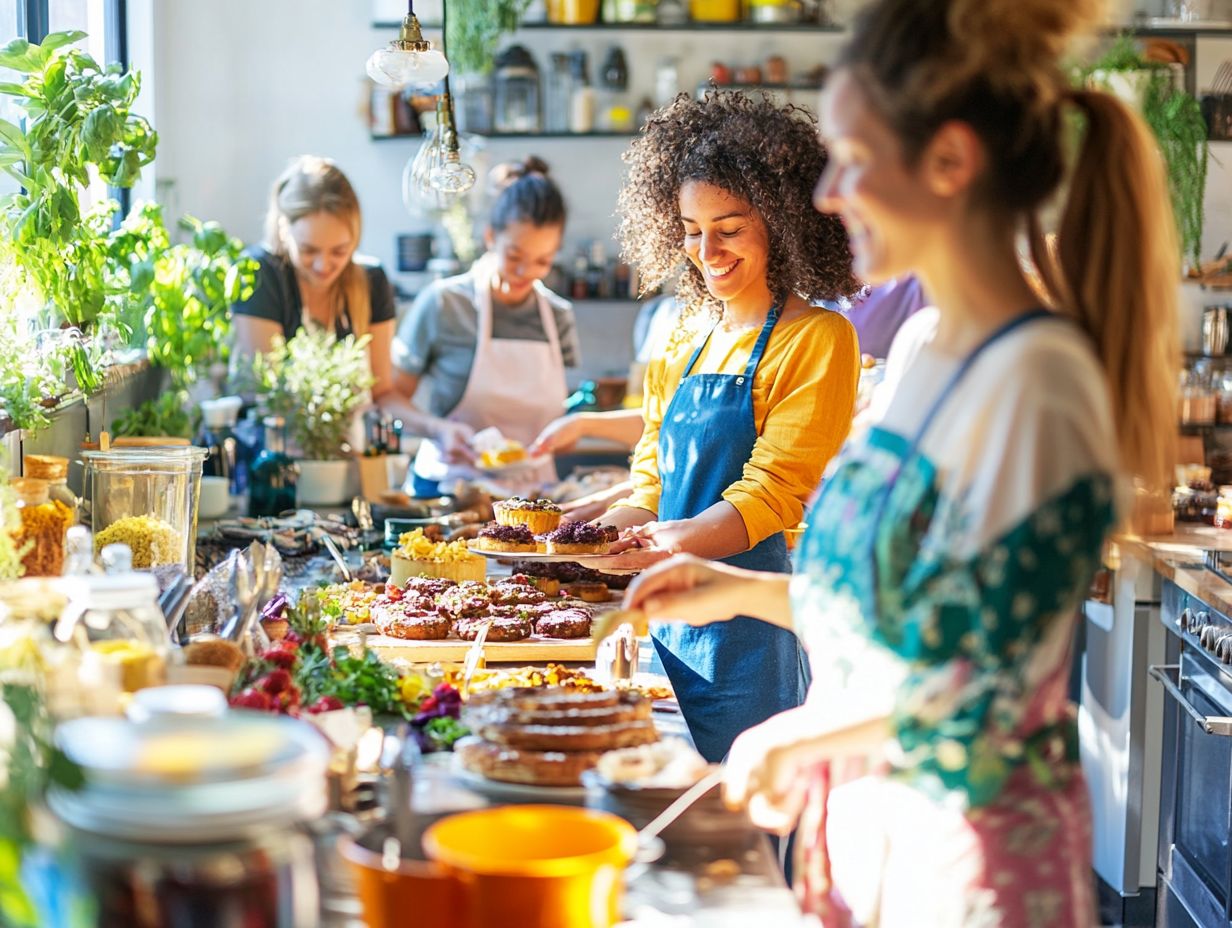
Vegan baking is a remarkable choice for anyone with special dietary needs, offering a treasure trove of options that cater to gluten-free, dairy-free, and egg-free diets. This ensures that everyone can indulge in delicious, wholesome desserts without compromise. By embracing healthy ingredients and innovative techniques, you ll create irresistible treats that are safe and delightful for various dietary restrictions.
To elevate your recipes even further, consider incorporating gluten-free flours like almond, coconut, or oat flour, which are readily available at most grocery stores or specialty health markets. Similarly, integrating alternative sweeteners such as maple syrup, coconut sugar, or agave nectar allows you to maintain delightful sweetness while respecting dietary preferences.
If you ve ventured into these adaptations, share your experiences whether they re triumphs or challenges to help cultivate a supportive community. Encouraging conversations about the modifications made to traditional recipes can inspire others to experiment and discover the joy of baking, even when navigating unique dietary challenges. Consider joining platforms like Facebook or Instagram to connect with like-minded individuals.
7. Baking with Alternative Flours and Sweeteners
Incorporating alternative flours and sweeteners in your vegan baking journey opens the door to new flavors and textures while enhancing the nutritional profile of your creations. Whole wheat flour, almond flour, and natural sweeteners like jaggery can be your allies in crafting healthier dessert options that satisfy even the most discerning sweet tooth.
For instance, almond flour brings a moist, nutty richness that elevates various recipes. Whole wheat flour adds delightful heartiness to breads and muffins. When swapping traditional flours, it s crucial to understand how well each flour absorbs moisture and their unique properties to achieve the perfect consistency. This is especially important in healthy baking, where maintaining the nutritional profile is key.
Using natural sweeteners can also transform the texture of your baked goods. For example, agave syrup sweetens and adds moisture, resulting in delightfully soft treats. Picture rich almond brownies or light, fluffy coconut flour pancakes these successful examples of vegan baking invite you to delve into the art of alternative methods. Learning from experts like Olga Mankova, Ekta Minocha, and Rosalind Miller can provide invaluable insights.
Experimenting with these substitutions enhances flavor and ignites your creativity in the kitchen, allowing you to explore and innovate like never before.
8. Vegan Cake Decorating Techniques
Vegan cake decorating techniques enable you to infuse a personal touch into your creations, transforming simple cakes into breathtaking showcases of artistry and flavor. By mastering skills such as using vegan buttercream for intricate designs and understanding cake presentation, you can elevate any cake from ordinary to extraordinary, ensuring it becomes the centerpiece of any celebration.
If you’re eager to explore various decorating styles, techniques like piping intricate patterns, achieving smooth fondant finishes, or incorporating edible embellishments can ignite your creativity. These elements enhance visual appeal and provide a canvas to express your unique personality through baking.
Engaging with the baking community is an excellent way to refine your techniques. Practice your skills and share your finished creations online to cultivate a supportive environment where feedback and inspiration flourish. Countless online resources offer tutorials and classes dedicated to cake decorating, making it easier than ever to learn and master these delightful methods.
9. How to Make Vegan Frosting and Icing
Creating vegan frosting and icing is essential for perfecting your cake decorating skills, as it enhances both the flavor and visual appeal of your cakes while staying true to plant-based principles. Incorporating ingredients like vegan buttercream or cashew cream allows you to whip up rich, creamy frostings that beautifully complement your favorite cake recipes.
To kick things off, begin with classic vegan buttercream, which requires just a handful of simple ingredients: vegan butter, powdered sugar, non-dairy milk, and vanilla extract. Mixing these together will achieve a fluffy texture that spreads with ease.
For a tangy twist, consider a cream cheese icing made from blended cashews, lemon juice, and maple syrup a delightful alternative that adds character. To make ganache, simply melt vegan chocolate with plant-based cream for that glossy finish that dreams are made of.
Dive into the exciting world of flavors like cocoa, matcha, and fresh fruits to craft your unique variations. Adjusting the liquid content will help you achieve the perfect consistency, whether you re spreading or piping.
Ultimately, the goal is to savor the process and discover your personal favorites through a bit of trial and error. So grab your ingredients and start creating your unique frosting today!
10. Troubleshooting Common Vegan Baking Issues
Troubleshooting common vegan baking issues is essential, especially when you’re striving for consistent results with plant-based ingredients that often behave differently than traditional ones. By identifying problems like dense cakes, uneven baking, or frosting that refuses to hold, you can refine your techniques and help you succeed every time.
You might face challenges like inaccurate measurements or substitutions that alter the desired texture. To tackle these issues, it s vital to become familiar with vegan alternatives like aquafaba the liquid from canned chickpeas, a fantastic egg substitute or flaxseed meal as egg replacements and to experiment gradually with ingredient ratios.
Keeping a baking journal can be an invaluable tool, allowing you to log both your successes and any mishaps. This practice helps you identify patterns and adjust your recipes.
Prioritizing safety by working in a clean space and being cautious when trying new baking methods can alleviate anxiety and contribute to a more rewarding baking experience.
What Are the Benefits of Joining a Vegan Cake Baking Class?
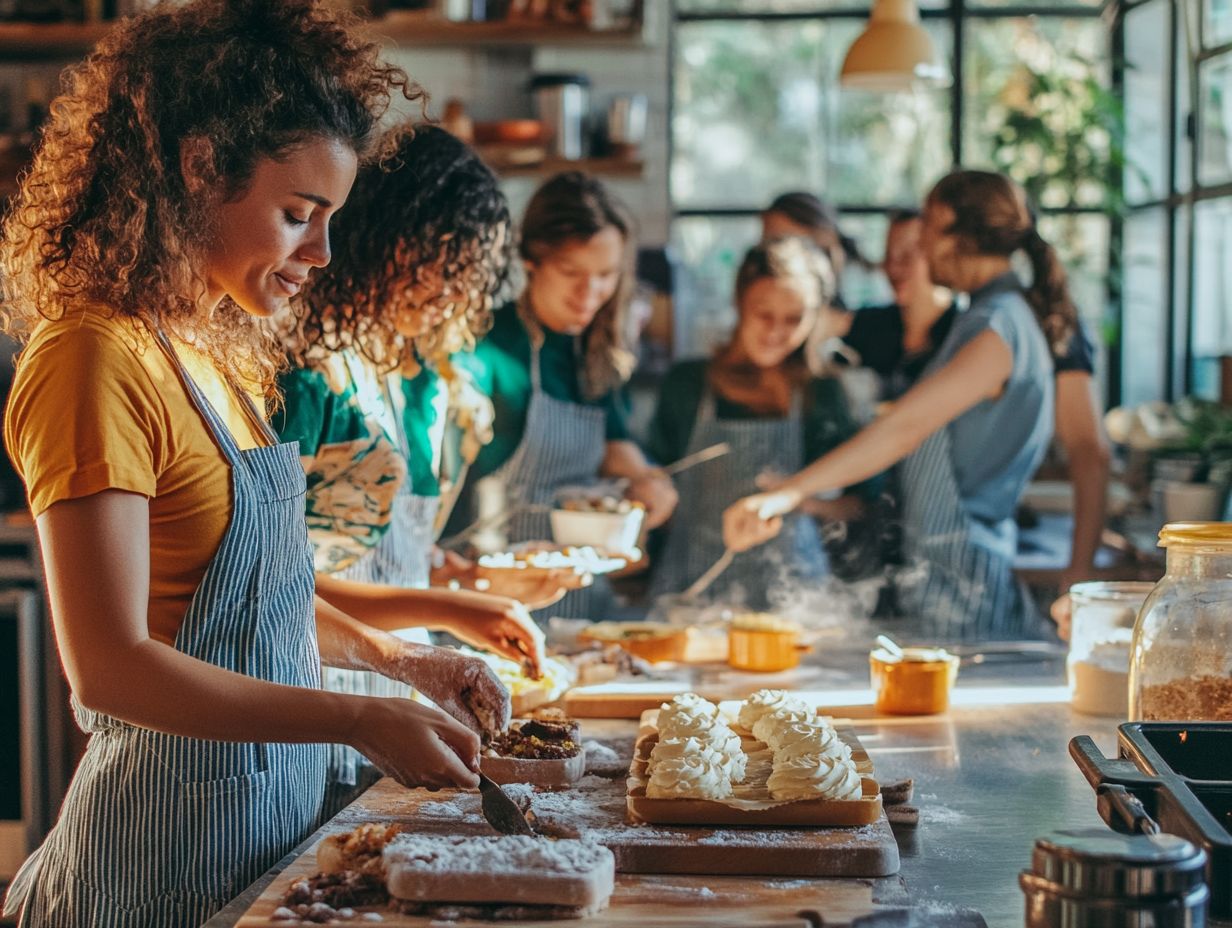
Get ready to gain hands-on experience with exciting baking techniques! Enrolling in a vegan cake baking class opens the door to a world of benefits. You’ll receive detailed guidance from seasoned instructors and enjoy individual attention to help elevate your baking skills.
These classes create the ideal environment for you to learn about ingredient control, experiment with vegan alternatives, and connect with a community of fellow baking enthusiasts who share your passion.
You’ll have the chance to explore a wide array of recipes, from timeless classics to inventive desserts, ensuring there’s something for you to master, no matter your taste. Many classes cater to varying skill levels, making it effortless for beginners to find their footing while allowing more experienced bakers to refine their techniques and push their boundaries.
The collaborative atmosphere cultivates friendships and support, transforming baking into a shared adventure rather than a solitary endeavor. Don t miss out on the chance to transform your baking skills with these amazing classes, with options for both in-person and online learning. You can select the format that best aligns with your lifestyle, accessing a wealth of knowledge and resources right from the comfort of your own kitchen.
What Are Some Popular Vegan Cake Baking Classes Available?
You ll find a wealth of popular vegan cake baking classes available, whether you prefer the energy of in-person instruction or the convenience of online learning. These classes come in various formats, including live demonstrations and recorded sessions, catering to all your learning preferences. Whether you’re a novice or an experienced baker, you can explore topics ranging from essential techniques to advanced decorating skills there s something to tantalize every baker’s palate.
Take, for example, the esteemed Vegan Baking Course from a renowned culinary school. This comprehensive program delves into everything from the science behind plant-based ingredients to crafting intricate cake designs that will impress any crowd. In these classes, expert instructors lead you through each step of the process, sharing priceless tips that will elevate your baking game to new heights.
Local workshops often offer hands-on sessions, allowing you to practice creating signature treats like decadent chocolate cakes and fluffy cupcakes alongside fellow enthusiasts. If you prefer the flexibility of learning at your own pace, online platforms such as Udemy or Skillshare are brimming with options, featuring delightful vegan recipes to experiment with.
By exploring both local and virtual opportunities, you can discover the perfect fit for your culinary journey.
What Are the Key Skills Learned in a Vegan Cake Baking Class?
Join a vegan cake baking class and unlock the secrets of delicious plant-based desserts! In a vegan cake baking class, you will acquire essential baking skills that span from the fundamentals of healthy baking to advanced techniques for crafting stunning desserts that align with plant-based principles.
With detailed guidance from expert instructors, you’ll gain the confidence to create a variety of cakes and desserts while exploring innovative vegan alternatives.
Throughout the course, you will learn essential methods for ingredient substitution, enabling you to replace traditional dairy and eggs with exciting plant-based options like aquafaba, flaxseed meal, and nut milks.
The course will emphasize mixing techniques that achieve perfect batter consistency, along with hands-on practice in decorating cakes with icing and fondant.
Each session offers invaluable feedback and constructive criticism from your instructors, allowing you to refine your techniques and elevate your baking skills. This iterative learning process not only builds your confidence but also sparks creativity in developing unique and delicious vegan confections.
How Can a Vegan Baking Class Help Improve Baking Skills?
A vegan baking class can elevate your baking skills significantly by providing a structured learning environment where you can practice various techniques under the guidance of experienced chefs. This hands-on experience will allow you to refine your baking efforts, build confidence in your abilities, and discover tips and tricks that can elevate your baking endeavors to new heights.
The interactive nature of these classes not only sparks your creativity but also fosters collaboration with fellow participants, enriching the entire learning experience.
Many individuals who have taken such classes report a remarkable improvement in their retention of techniques. One participant mentioned that the immediate feedback from instructors and peers helped solidify their understanding of plant-based ingredients.
Another alumna shared how hands-on practice with unique recipes in a supportive environment completely transformed her approach to baking.
If you re an aspiring baker, consider seeking out reputable classes that emphasize hands-on learning and offer a nurturing community. Choosing the right class can transform your baking journey!
What Are the Different Types of Vegan Cake Baking Classes?
You ll find a wide array of vegan cake baking classes available, whether you prefer online courses, live workshops, or in-person cooking classes that fit your unique preferences and schedule. Each format presents its own set of advantages, allowing you to select the option that best aligns with your learning style and baking aspirations.
Online classes offer you the flexibility to learn at your own pace, granting access to a treasure trove of resources right from your kitchen. This is especially valuable for beginners eager to delve into the fundamentals of vegan baking without the pressure of a traditional classroom setting.
On the flip side, in-person classes provide essential hands-on experience, which is crucial for mastering techniques in advanced decorating or specialized sessions focused on healthy baking practices.
Here, immediate feedback and direct interaction with instructors can significantly enrich your learning journey. For instance, a live workshop would allow you to fully immerse yourself in the sensory details of baking, capturing insights that mere videos might fail to convey.
What Are Some Tips for Choosing the Right Vegan Cake Baking Class?
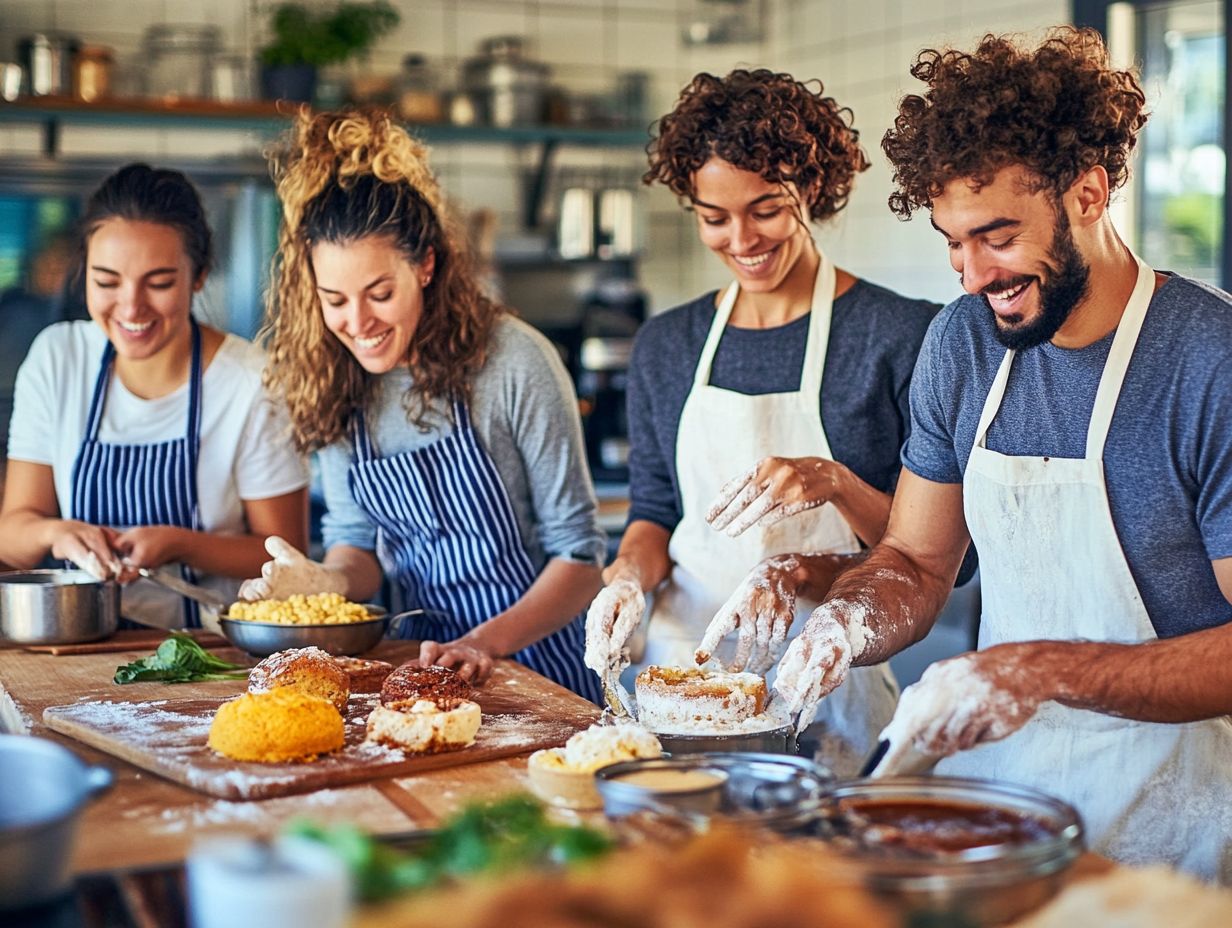
Choosing the right vegan cake baking class requires careful consideration of various factors. Key elements include the class format, the instructor’s experience, and the curriculum focus. These factors should align with your personal learning objectives and baking ambitions.
Engaging with the baking community and seeking recommendations can provide valuable insights into which classes offer individual attention and detailed guidance. To make an informed decision, it’s advisable to look at reviews and testimonials from previous students. These insights can highlight the effectiveness of teaching methods and how happy past students were.
Understanding the course content is crucial as well. A well-structured syllabus that balances theory and practical application will significantly enhance your learning experience. Assessing the qualifications and background of the instructors can give you reassurance about their expertise in vegan baking techniques.
Consider your current skill level and any specific interests in vegan baking to ensure the class aligns with your culinary goals.
Frequently Asked Questions
What are the best vegan cake baking classes to join?
The best vegan cake baking classes will depend on your location and personal preferences. Popular options include online classes, local community center classes, and classes offered by specialized vegan bakeries or chefs.
What can I expect to learn in a vegan cake baking class?
In a vegan cake baking class, you can expect to learn techniques for baking cakes without using animal products like eggs, butter, and milk. You’ll also learn about alternative ingredients and how to create delicious, visually appealing vegan cakes.
Do I need to have any prior baking experience to join a vegan cake baking class?
No, you do not need any prior baking experience to join a vegan cake baking class. These classes cater to both beginners and experienced bakers. Instructors will provide guidance and support throughout the process.
Are there any age restrictions for joining a vegan cake baking class?
Age restrictions may vary depending on the class and instructor. Some classes are suitable for children or families, while others are geared toward adults. It’s best to check with the class provider for any specific age restrictions.
What equipment or ingredients will I need for a vegan cake baking class?
The equipment and ingredients needed will depend on the specific recipes being taught. Generally, you will need basic baking tools such as mixing bowls, measuring cups, and a spatula, as well as vegan ingredients like plant-based milk and egg substitutes.
Can I request a specific type of vegan cake to be taught in a baking class?
Many baking classes have set menus or recipes to follow, but some may allow for requests or customization. It’s best to check with the class provider beforehand to see if they can accommodate specific dietary preferences or requests.
